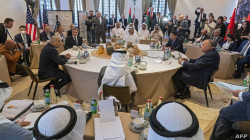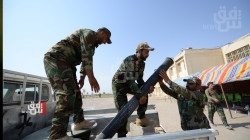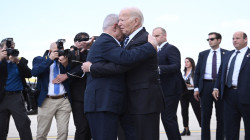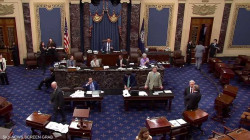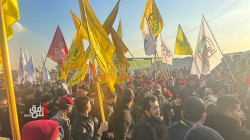Islamic Resistance in Iraq threatens attacks on US and Israeli targets in the Gulf and West Asia
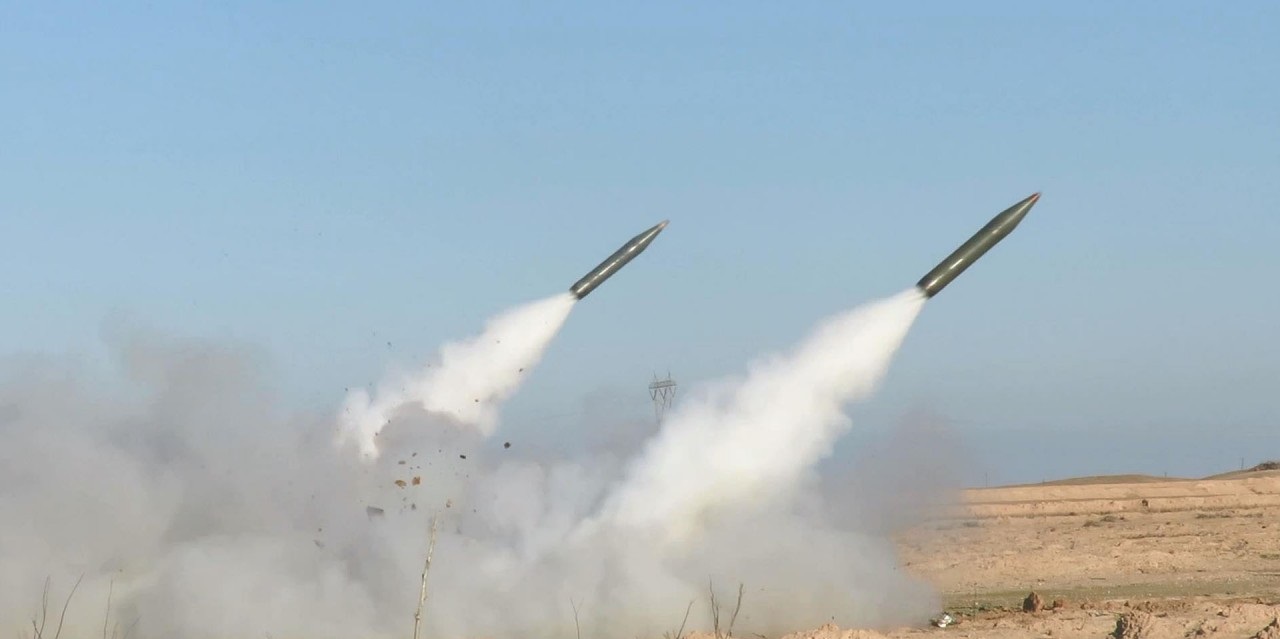
Shafaq News/ On Tuesday, the "Islamic Resistance in Iraq" threatened to bomb American and Israeli targets in the Gulf and West Asia, pledging retaliation for any attacks against Yemen, Lebanon, or any of the "Axis of Resistance" countries.
Jaafar al-Husseini, the military spokesman for the Iraqi Hezbollah Brigades (Kataib Hezbollah), a prominent faction of the "Iraqi resistance," revealed in an interview with "Al-Mayadeen" channel that communication with the Palestinian resistance has intensified since the recent events. He emphasized the deepening connections at political, military, and popular levels.
Discussing the capabilities of the "Iraqi resistance," al-Husseini asserted that it has significantly increased in numbers, "surprising the enemy, with details known only to the Americans who have witnessed them in certain areas and battles." He noted the utilization of developed capabilities during operations against American and Israeli sites in response to the Gaza Strip aggression. The operations involved drones, short-range and smart missiles, long-range missiles, and aircraft targeting vital locations in Eilat, the Dead Sea, and the Mediterranean. Al-Husseini hinted at undisclosed weapons in possession.
He highlighted the escalation of operations, including the first-time use of short-range ballistic missiles on American bases like Ain al-Asad. Long-range missiles, such as the developed cruise, were employed to target vital sites in Haifa.
Al-Husseini emphasized the continuing geographic expansion of the Islamic resistance in Iraq as long as Israeli aggression persists.
Alluding to support for Israel from Gulf countries, specifically the UAE, al-Husseini warned of a special response, with other options to counter such support.
Regarding American threats and pressures to cease operations, al-Husseini stressed that the focus remains on ending aggression, lifting the siege on Gaza, and supporting Palestinians.
"The resistance remains indifferent to external pressures and will persist in targeting enemy strongholds and interests throughout the region."
Al-Husseini declared the unity of the Axis of Resistance after the Al-Aqsa flood. He touched upon the possibility of Hezbollah engaging with Israel, asserting the Iraqi resistance's presence would be, in this case, in Lebanon to support the Lebanese people.
Regarding Yemen, al-Husseini warned that any attack on Yemen would result in the Islamic resistance in Iraq responding vigorously, promising that the United States would face "unforgettable days and lasting nightmares."
He disclosed the role of the resistance in Bahrain within the resistance axis, suggesting its increasing clarity in the coming years and upcoming confrontations.
Al-Husseini projected the expansion of the resistance axis to include East Asia and some Caucasus countries in the next decade.
